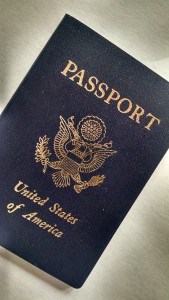 Olive Branch Petition was signed by representatives from the Second Continental Congress in 1775. It was delivered to King George III as one last try to peacefully resolve differences between the American colonies and Great Britain. Older children could read a copy of the petition at: Olive Branch Petition. Idea: Children could predict what would have happened if the king had not ignored the petition.
Olive Branch Petition was signed by representatives from the Second Continental Congress in 1775. It was delivered to King George III as one last try to peacefully resolve differences between the American colonies and Great Britain. Older children could read a copy of the petition at: Olive Branch Petition. Idea: Children could predict what would have happened if the king had not ignored the petition.
 Declaration of Independence was read publicly for the first time in Philadelphia, Pennsylvania, in 1776 by Colonel John Nixon. The Liberty Bell tolled to bring citizens to hear the reading. Children can read a copy of the Declaration of Independence at: Declaration.
Declaration of Independence was read publicly for the first time in Philadelphia, Pennsylvania, in 1776 by Colonel John Nixon. The Liberty Bell tolled to bring citizens to hear the reading. Children can read a copy of the Declaration of Independence at: Declaration.
 State Department issued the first passport in 1796. Francis Maria Barrere received the document. Idea: Children could perhaps see a passport and learn how passports are issued. Older children can read a history of US passports at: Passport History.
State Department issued the first passport in 1796. Francis Maria Barrere received the document. Idea: Children could perhaps see a passport and learn how passports are issued. Older children can read a history of US passports at: Passport History.

Liberty Bell
Courtesy Bev Sikes
Liberty Bell cracked in Philadelphia, Pennsylvania, for the second time in 1835. It was ringing to mark the funeral of Chief Justice John Marshall. The 2080-pound bell was originally cast in England in 1752. However, it cracked soon after arrival. The bell’s metal was melted and re-cast in 1753. Children can learn more at: Liberty Bell.
James Cross Giblin (born Cleveland, Ohio, 1933; died New York, New York, April 10, 2016) wrote books for children. His works include The Riddle of the Rosetta Stone and The Amazing Life of Benjamin Franklin. He received the 2003 Sibert Medal for The Life and Death of Adolph Hitler.
Count Ferdinand von Zeppelin (born Constance, Baden, 1838; died Berlin, Germany, March 8, 1917) was a German scientist. He traveled to the United States during the Civil War. He went up in Union hot air balloons and realized the importance of air travel. He returned to Europe and developed lighter-than-air dirigibles. These dirigibles are sometimes called Zeppelins. Idea: Children could check out how we use dirigibles today and find out why we do not use them extensively.